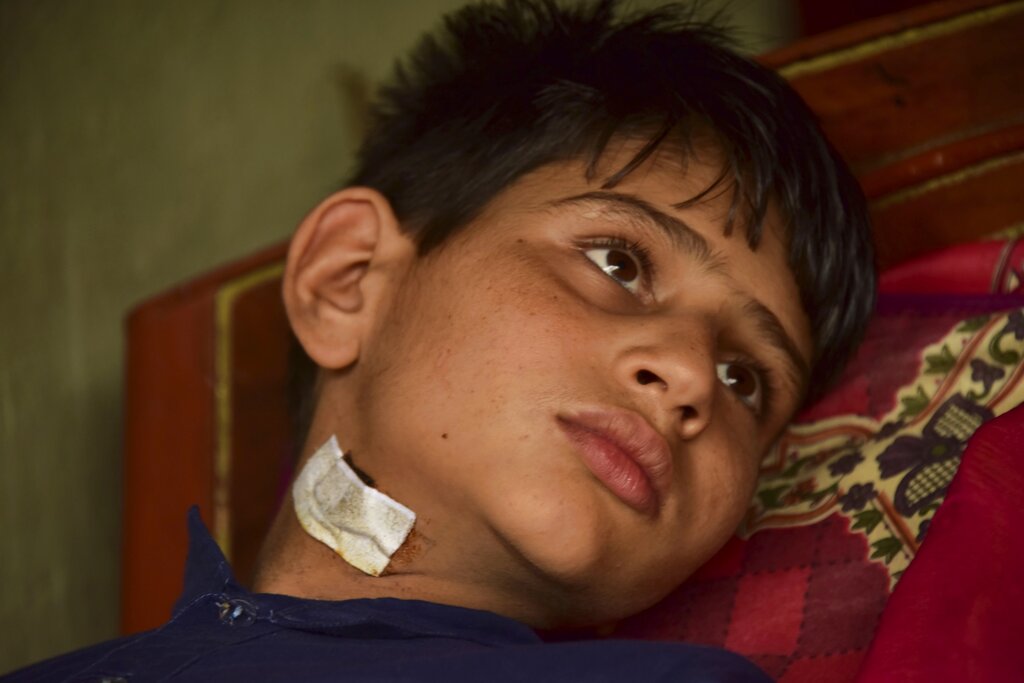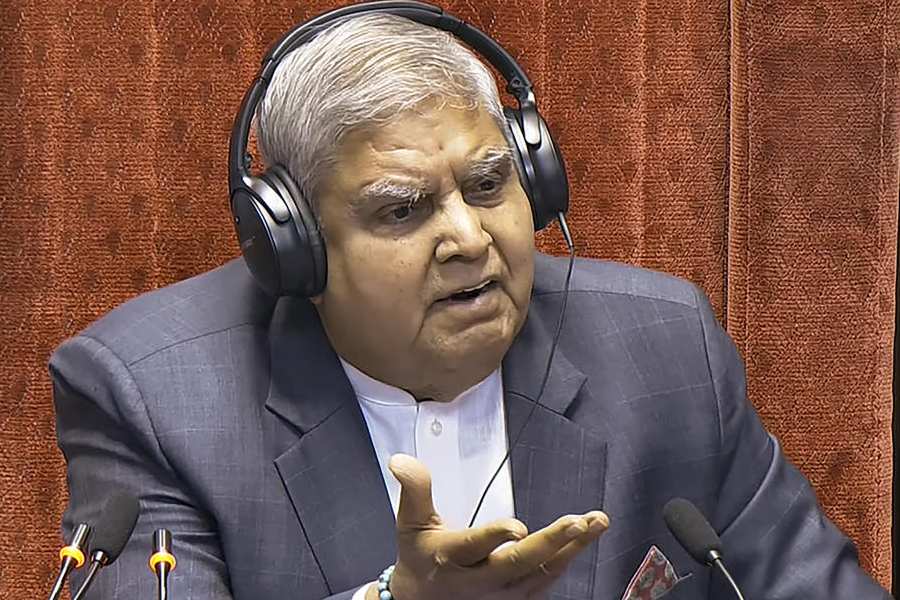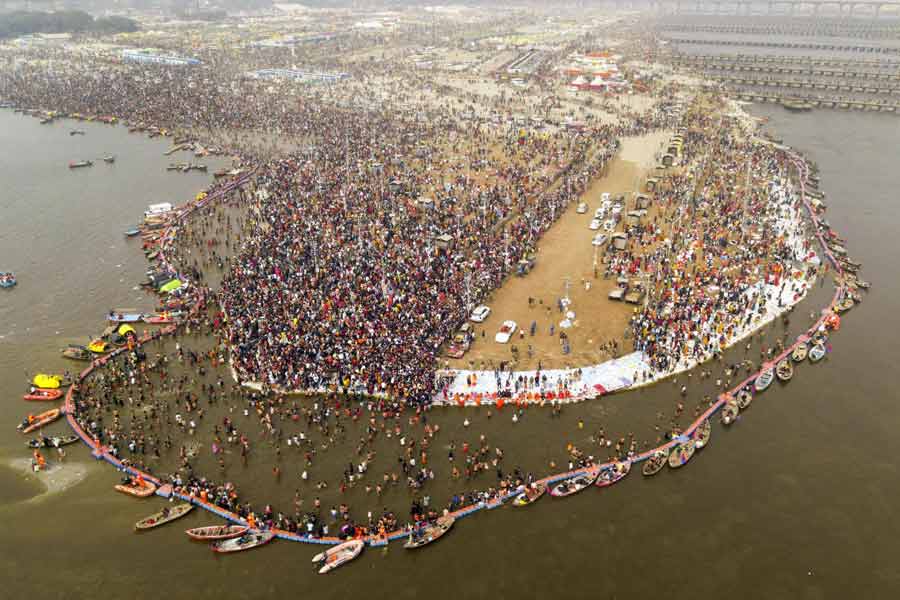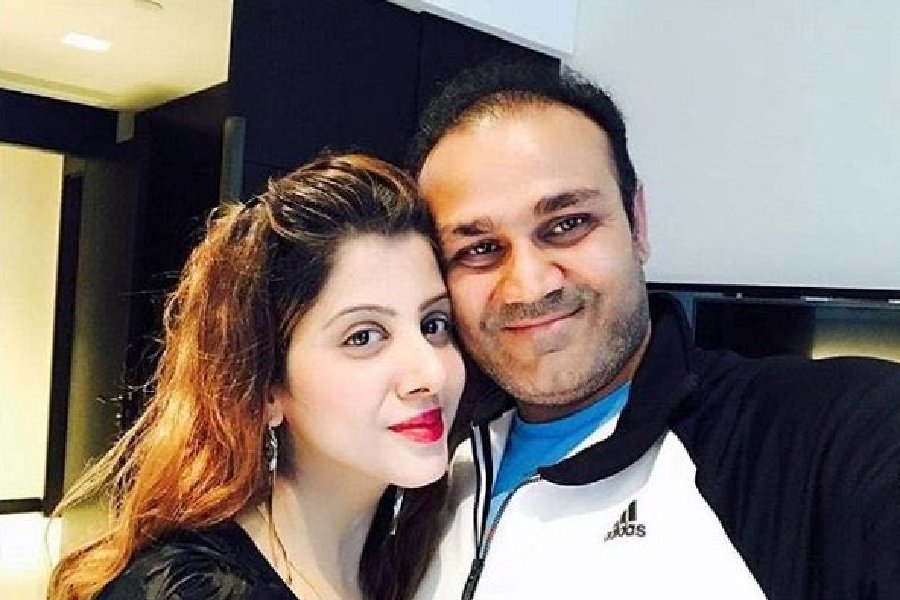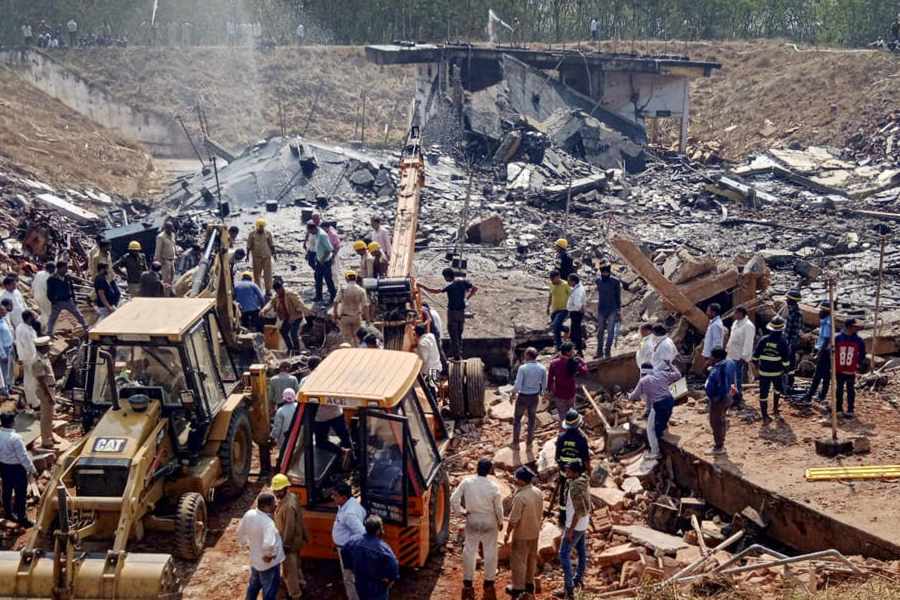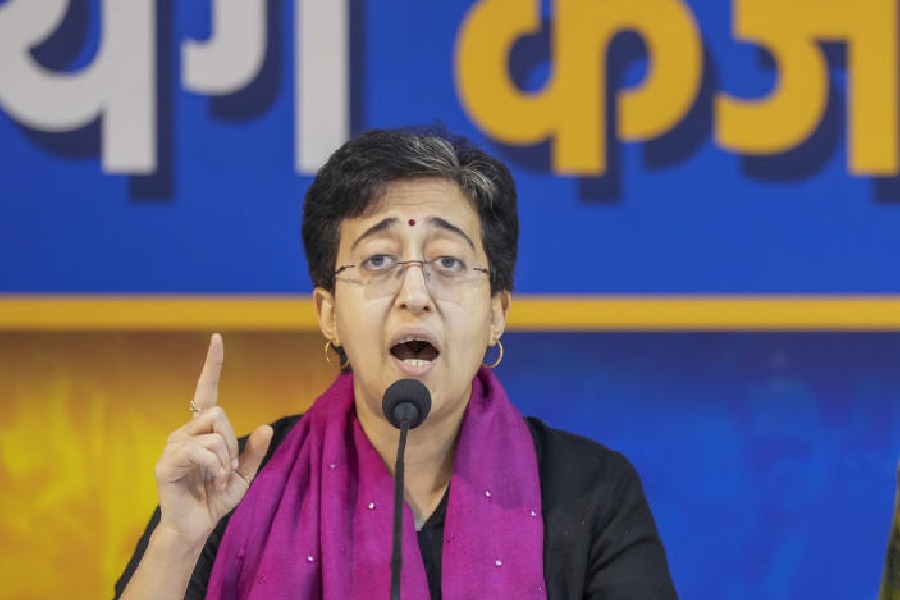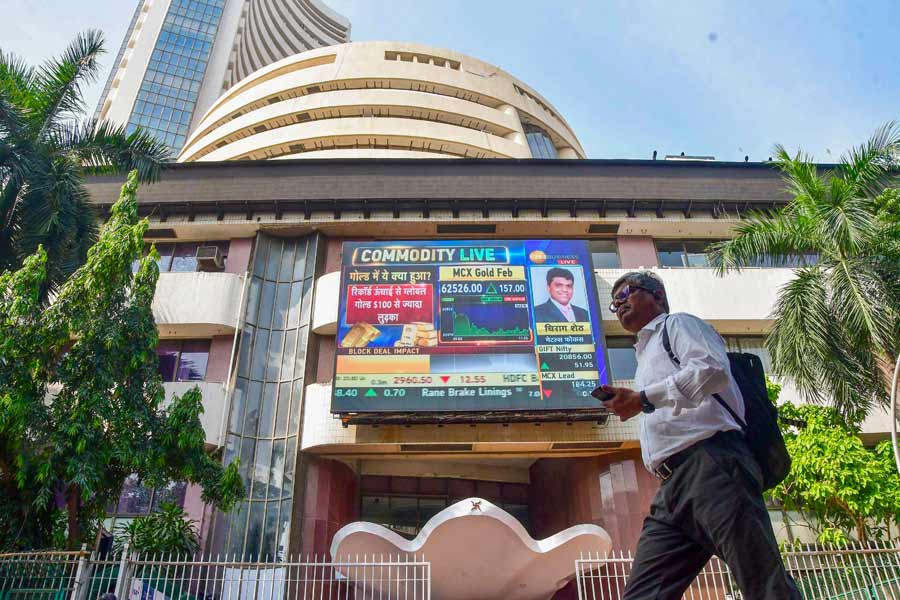A team of civil society members has recorded testimonies about children who say they were detained and beaten in Kashmir since an ongoing lockdown erected an information blockade in the Valley.
The team members said they were denied the use of the projector of Press Club of India, where they released a report on Wednesday after touring Kashmir from August 9 to 13. At the Press Club, the team was unable to show a short film on their journey in Kashmir, which was later uploaded on YouTube.
The report, titled “Kashmir Caged”, is authored by Jean Dreze, economist; Maimoona Mollah, president of the CPM-backed Janwadi Mahila Samiti —Delhi; Kavita Krishnan, secretary of the CPIML-Liberation-backed All India Progressive Women’s Association; and Vimal, an anti-dam activist.
Their report was made public at a time large sections of the mainstream Indian media have been accused of toeing the government line or have faced communication hurdles in reporting from the lockdown state which is scheduled to become a Union Territory on October 31.
The Telegraph’s journalists in Srinagar were unable to gather information and file reports in the immediate aftermath of the decision to revoke the special status and statehood of Jammu and Kashmir.
Representatives of mainstream Opposition parties have also been barred from entering Jammu and Kashmir. Against such a backdrop, the report of the four activists assumes considerable significance and helps plug an inexcusable vacuum in a democracy although critics accuse them of bias.
This newspaper tried to elicit official response to the contents of the report, messaging K. Vijay Kumar, adviser to the Jammu and Kashmir governor, and the Union government’s principal spokesperson Sitanshu Kar. Neither had responded till Wednesday night.
The following are some of the specific instances listed in the report, “Kashmir Caged”:
- “On 6 August, a graphic designer for the Rising Kashmir newspaper, Samir Ahmad, (in his early 20s) had remonstrated with a CRPF man near his home in the Manderbag area of Srinagar, asking him to allow an old man to pass. Later the same day, when Samir opened the door to his house, CRPF fired at him with a pellet gun, unprovoked. He got 172 pellets in his arm and face near the eyes, but his eyesight is safe.”
- “We met a 11-year-old boy in Pampore who had been held in a police station between 5 August and 11 August. He had been beaten up, and he said there were boys even younger than him in custody, from nearby villages. Hundreds of boys and teens are being picked up from their beds in midnight raids. The only purpose of these raids is to create fear. Women and girls told us of molestation by armed forces during these raids.”
- In a video made by the team, which could not be screened at the media conference venue, a boy is heard saying that he was detained by the security forces while going to offer namaz on August 5 (the day the Centre’s plans were unveiled in Parliament). He says that there were 10 to 12 children with him in custody and they were beaten.
No faces are shown in the video, and the camera focuses on the feet of the narrators to protect their identity.
- “When our flight landed, and the airline staff announced that passengers could switch on our mobiles, the entire flight (with mostly Kashmiris in it) burst into mocking laughter. “What a joke”, we could hear people say -- since mobile and landline phones and Internet have all been blocked since 5 August!”
- “Except for the BJP spokesperson on Kashmir affairs, we did not meet a single person who supported the Indian government’s decision…. On the contrary, most people were extremely angry.”
- “The Indian media’s claims of a rapid return to normalcy in Kashmir are grossly misleading. They are based on selective reports from a small enclave in the centre of Srinagar.”
- “The words we heard over and over from people about the government decisions on J&K were ‘zulm’ (oppression), ‘zyadti’ (excess/cruelty), and ‘dhokha’ (betrayal). As one man in Safakadal (downtown Srinagar) put it, “The government has treated us Kashmiris like slaves, taking decisions about our lives and our future while we are captive. It’s like forcing something down our throats while keeping us bound and gagged, with a gun to our heads.”
- In every lane of Srinagar city, every town, every village, that we visited, we received an extensive schooling from ordinary people, including school kids, on the history of the Kashmir dispute. They were angry and appalled at the manner in which the Indian media was whitewashing this history.”
- “Not all demanded restoration of Article 370. Many said that it was only the parliamentary parties who had asked people to have faith that India would honour the contract that was Article 370. The abrogation of Article 370 only discredited those ‘pro-India parties’, and vindicated those who argued for Kashmir’s ‘azaadi’ (independence) from India, they felt.”
- “We met two victims of pellet gun injuries in SMHS hospital in Srinagar. The two young men (Waqar Ahmad and Wahid) had faces, arms and torso full of pellets. Their eyes were bloodshot and blinded. Waqar had a catheter in which the urine, red with blood from internal bleeding, could be seen. Their family members, weeping with grief and rage, told us that the two men had not been pelting stones. They had been peacefully protesting.”
- We met BJP spokesperson on Kashmir affairs, Ashwani Kumar Chrungoo at the office of Rising Kashmir, a Kashmir newspaper…. Should a government impose an unpopular decision on people of Kashmir who have not voted for that decision, at gunpoint? Chrungoo said: “In Bihar when Nitish Kumar imposed prohibition, he didn’t ask the alcoholics for their permission or consent. It’s the same here.” His contempt for the people of Kashmir was evident from this analogy.
“Towards the end of the conversation, he became increasingly edgy when confronted by facts and arguments by us. He got up and wagged a finger at Jean Dreze, saying ‘We won’t let anti-nationals like you do your work here. I am warning you.’”
- There is widespread anger against the Indian media. People are imprisoned in their homes, unable to communicate with each other, express themselves on social media, or make their voices heard in any way. In their homes, they watch Indian TV claim that Kashmir welcomes the government decisions. They seethe with rage at the erasure of their voices. As one young man in Safakadal put it, “Kiski shaadi hai, aur kaun naach raha hai?! (It’s supposed to be our wedding, but it’s only others who are dancing!) If this move is supposed to be for our benefit and development, why not ask what we ourselves think about it?”
Press Club
At the media conference at the Press Club of India in New Delhi, Krishnan, the secretary of the All India Progressive Women’s Association, asked a question: “Surely this is a time when we all need to stand up to pressure. If the Press Club cannot allow our footage and pictures to be screened, then who can?”
Although the Press Club allowed the venue to be booked, the team said they were not allowed to use the projector. Krishnan said they were told that the club is “under scrutiny.”
Press Club president Anant Bagaitkar, who is out of town, told this newspaper: “We did not tell them not to show this, or don’t say this.”
Bagaitkar said he was unaware why they could not use the projector. An office bearer told this paper: “We do not want to have a situation where we are forced by authorities not to have any such press conferences in future.”
In 2016, the club was investigated for an event in which Kashmiri students raised slogans for independence from India.
In Kashmir, the team was not allowed to meet CPM MLA M.Y. Tarigami, currently ill and under house arrest in Srinagar.
“At least 600 political leaders and civil society activists are under arrest. There is no clear information on what laws are invoked to arrest them, or where they are being held. A very large number of political leaders are under house arrest -- it is impossible to ascertain how many,” says the report.
Dreze said that the ratio of troops to civilians was as high as 1:10. “The purpose of the military presence is not for guarding the border, but to control the local population to prevent any protest however peaceful they may be,” Dreze said.

